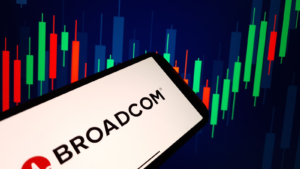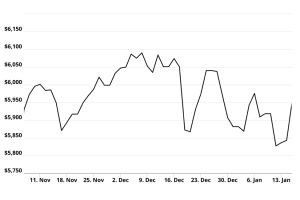
The best way to get rich is not through get-rich quick schemes — slow and steady wins the race. It is not something to achieve in a single quarter or even a year. You create financial freedom that you can pass on to your children and grandchildren over a lifetime.
The best generational wealth stocks are those that pay dividends. Income-generating stocks have a long history of outperforming not only non-dividend-paying stocks but other asset classes as well.
A Deutsche Bank study showed that over the past 100 years, equities beat out gold by 5.6% per year, housing prices by 6.6%, treasuries by 6.8% and oil by 8.4% per year. Over short periods of time one asset class or another may outperform stocks, but the long-term results prove that if you want to accumulate large amounts of wealth, investing in stocks is the way to go.
And dividend stocks are the best-performing stocks. Several years ago, the asset managers at JPMorgan found that stocks initiating a dividend and then raising their payouts over a 40-year period between 1972 and 2012 returned an average of 9.5% annually, versus just 1.6% non-dividend-paying stocks.
Investing $10,000 in 1960 in income stocks on the S&P 500 and reinvesting the dividends would turn that initial grubstake into $5.1 million today. It is clear that dividend stocks are the generational wealth stocks to buy. Below are three companies that have the potential to make your retirement comfortable and to hand down a rich legacy to your heirs.
Broadcom (AVGO)

Best known as a maker of mobile handset computer chips, Broadcom (NASDAQ:AVGO) has more recently pivoted to producing chips for data center infrastructure and its custom accelerators are in high demand. Generative artificial intelligence is what is driving the chipmaker to new heights. Broadcom stock is up 56% year-to-date and has nearly doubled over the past year.
Longer term opportunities for the company come from areas like quantum computing, sensing, measurement and engineering. But AI is piling on profits today. Broadcom anticipates AI chips will bring in $11 billion in sales in 2024 accounting for 25% of the total. That’s an increase from 15% of total sales in 2023.
It means Broadcom will be realizing profits to support its dividend for years to come. The dividend of $21 per share yields 1.2% annually. Broadcom has raised the payout for 15 consecutive years and has a 33% compounded annual growth rate (CAGR) over the last 10 years. It’s what makes the chipmaker a key component of generational wealth stocks for your portfolio.
American Tower (AMT)

American Tower (NYSE:AMT) is a specialty real estate investment trust (REIT) that owns cellular towers and leases them to wireless service providers, radio and television broadcast companies under long-term leases. More recently it entered the data center market and owns 28 facilities.
Cell towers are a fairly exclusive club and American Tower is one of the biggest with over 224,000 communications sites. There is also a wide and deep moat in the industry as siting, construction and operation of towers is expensive. According to CSIMarket, AMT owns 63% of the market.
American Tower stock is down 5% in 2024 as fears of a slowdown in network buildout by wireless carriers like AT&T (NYSE:T) and Verizon (NYSE:VZ) weighed on its shares. Yet there is a long tail of opportunity.
Demand for wireless coverage and capacity is increasing as the transition to 5G networks marches on. More and better coverage will be insisted upon by wireless carrier customers. It positions American Tower for future gains.
Because AMT is organized as a REIT, it is required to pay out 90% or more of its profits as dividends. It has raised its dividend by more than 16% annually for the last 10 year while growing free cash flow (FCF) at a CAGR of 12%. That gives it plenty of cash profits to support and raise the payout further in the years ahead.
Eli Lilly (LLY)

Drugmaker Eli Lilly (NYSE:LLY) is riding the wave of demand for weight-loss treatments to new heights. Shares are up 59% year-to-date and have more than doubled over the past year. Wall Street expects demand for its diabetes and weight-loss drugs Mounjaro and Zepbound to increase exponentially, driving earnings higher. Lilly is expected to expand profits at an astounding 63% CAGR for the next five years.
But the drugmaker is much more than just this fat-fighting therapy. For example, it just announced a $3.2 billion deal to acquire Morphic Holding (NASDAQ:MORF) to gain access to its inflammatory bowel disease treatment. In clinical trials, MORF-057 has blockbuster potential and should solidify Lilly’s competitive edge.
The pharmaceutical giant has paid a dividend every year since 1972 and has raised the payout for the past decade at a 10% CAGR. Although the payout yields 0.6% annually, over time the yield on cost increases dramatically. It makes Eli Lilly a generational wealth stock to buy now.
On the date of publication, Rich Duprey held a LONG position in T stock. The opinions expressed in this article are those of the writer, subject to the InvestorPlace.com Publishing Guidelines.
On the date of publication, the responsible editor did not have (either directly or indirectly) any positions in the securities mentioned in this article.



